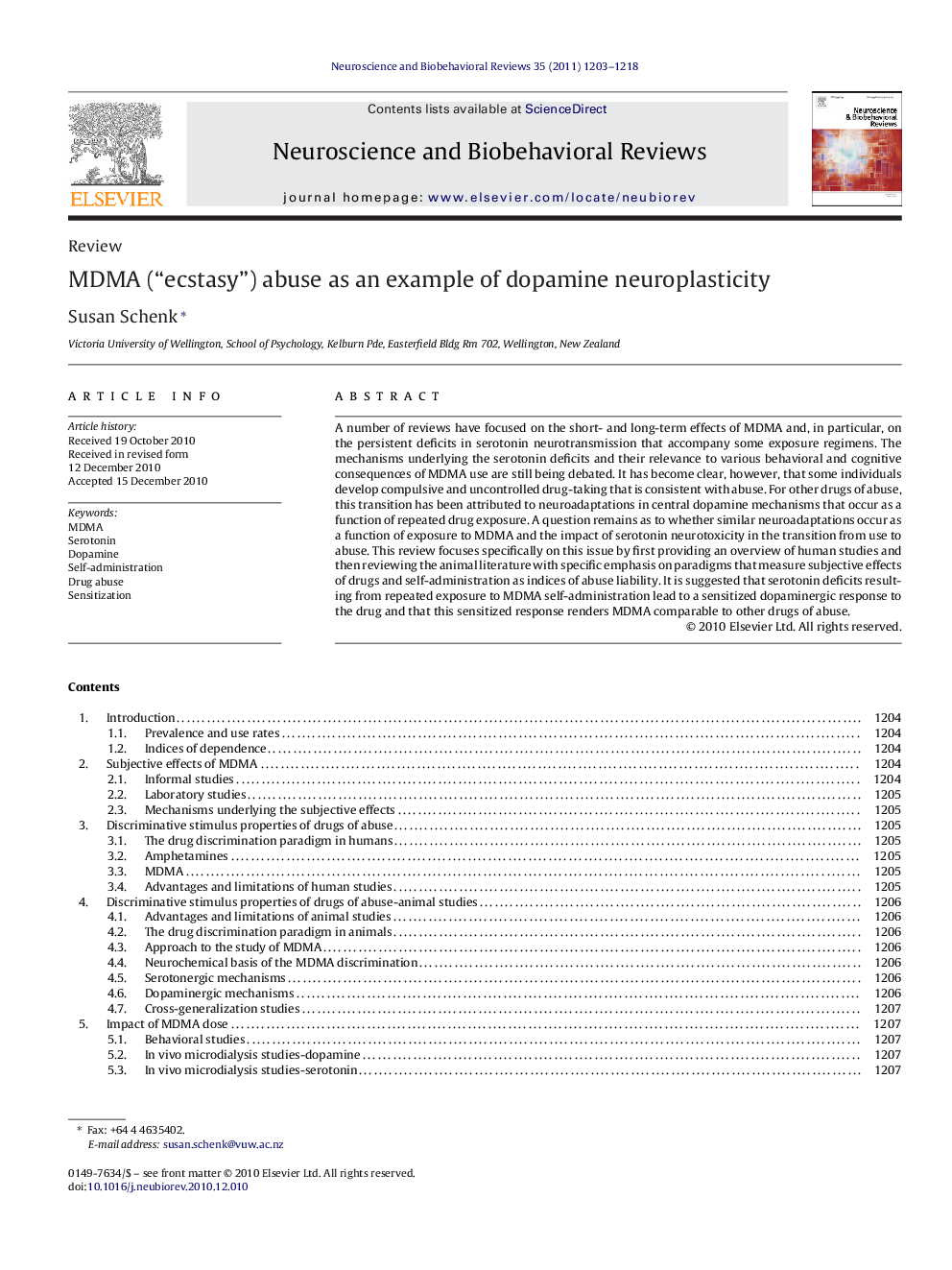| Article ID | Journal | Published Year | Pages | File Type |
|---|---|---|---|---|
| 937957 | Neuroscience & Biobehavioral Reviews | 2011 | 16 Pages |
A number of reviews have focused on the short- and long-term effects of MDMA and, in particular, on the persistent deficits in serotonin neurotransmission that accompany some exposure regimens. The mechanisms underlying the serotonin deficits and their relevance to various behavioral and cognitive consequences of MDMA use are still being debated. It has become clear, however, that some individuals develop compulsive and uncontrolled drug-taking that is consistent with abuse. For other drugs of abuse, this transition has been attributed to neuroadaptations in central dopamine mechanisms that occur as a function of repeated drug exposure. A question remains as to whether similar neuroadaptations occur as a function of exposure to MDMA and the impact of serotonin neurotoxicity in the transition from use to abuse. This review focuses specifically on this issue by first providing an overview of human studies and then reviewing the animal literature with specific emphasis on paradigms that measure subjective effects of drugs and self-administration as indices of abuse liability. It is suggested that serotonin deficits resulting from repeated exposure to MDMA self-administration lead to a sensitized dopaminergic response to the drug and that this sensitized response renders MDMA comparable to other drugs of abuse.
Research highlights▶ MDMA increases serotonin and to lesser extent dopamine neurotransmission. ▶ Repeated MDMA results in compromised serotonin and enhanced dopamine neurotransmission. ▶ Enhanced dopamine contributes to development of reliable self-administration. ▶ Serotonin and dopamine neuroplasticity underlie the transition to compulsive MDMA abuse.
